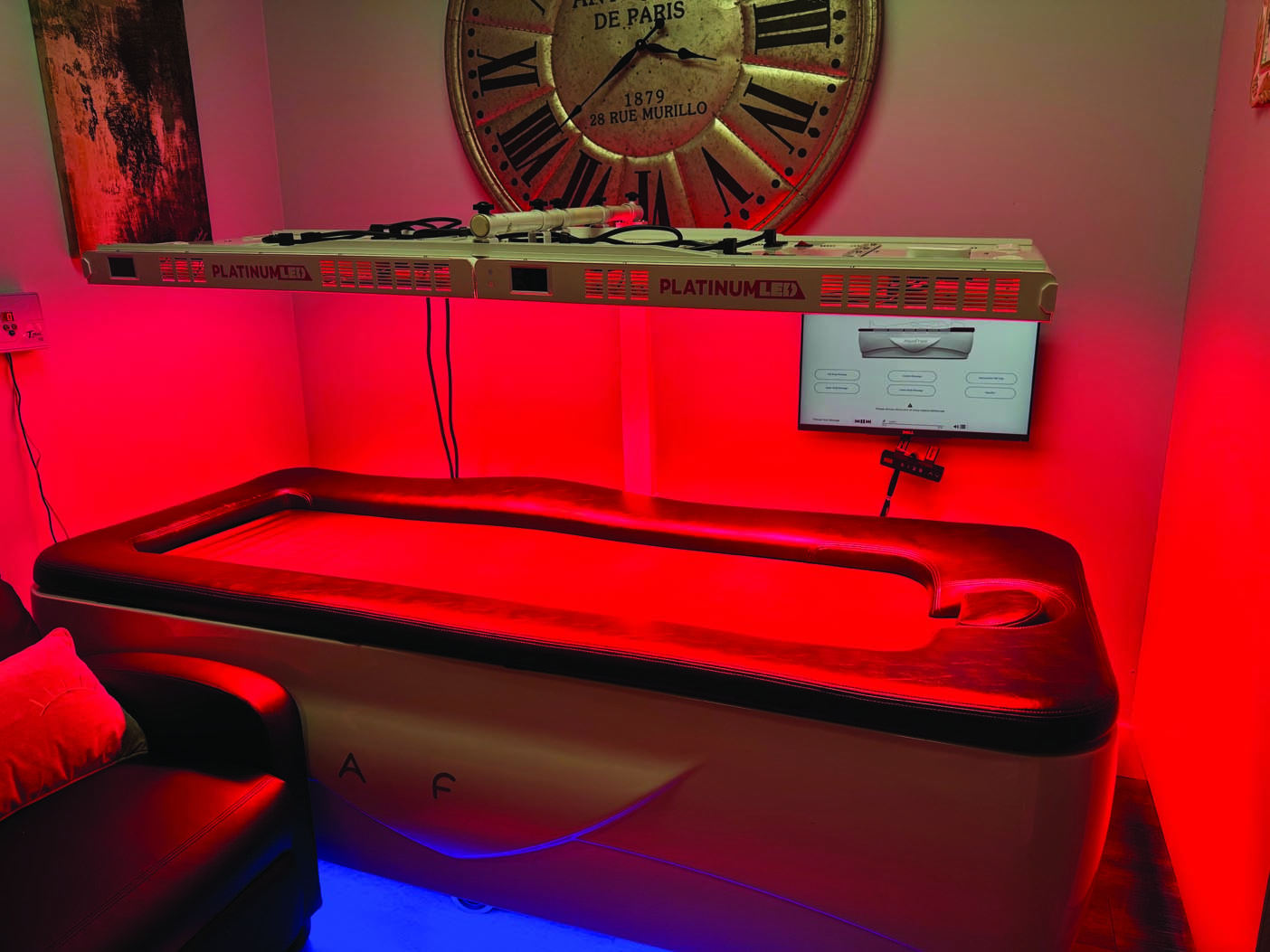Expert Panel:
Each issue of ist Magazine features content filled with valuable and relevant information gathered from knowledgeable salon professionals across the country. This month, the following group of tanning pros – who represent more than 100 years’ of combined industry experience – were kind enough to share their insight:
Nicki Flora, Owner, Copper Tans, Succasunna, NJ – Years in Industry: 12
Vince Lorraine, Publisher, ist Magazine, Flint, MI – Years in Industry: 33
Rick Norvell, Owner, Norvell Skin Solutions, Alexandria, TN – Years in Industry: 29
John Overstreet, Executive Director, Indoor Tanning Association, Washington, D.C. – Years in Industry: 11
Mario Suarez, Owner, The Original Island Sun Tanning, Somers Point, NJ – Years in Industry: 26
Although it happened on April 1, it wasn’t a joke – New Jersey lawmakers enacted an under-17 tanning ban … and the sun biz has the “Tan Mom” to thank for it!
On April 1, New Jersey Gov. Chris Christie signed Bill A2142 into law, which bans people under the age of 17 from using commercial tanning beds and/or sunless spray-tanning. While Christie, a Republican, has stated that he does not favor government regulation of small businesses, said the new law was key in protecting minors. Further, he cited the case of Patricia Krentcil of Nutley, NJ, who was arrested last April for allegedly taking her young daughter into a tanning booth with her. Krentcil, aka the “New Jersey Tan Mom”, denied exposing her child to artificial UV light, and a grand jury chose not to charge her with endangering the welfare of a child. While most tannings salon owners don’t have a bustling under-17 client base, the law will have a detrimental effect upon the indoor tanning industry.
“NO SURPRISE”
To John Overstreet, Indoor Tanning Association Executive Director, this teen tanning ban comes as no surprise. “When the story of the ‘New Jersey Tan Mom’ first broke, we saw it in news outlets all over the country for the next five to six days, and this was no accident,” Overstreet said. “Our detractors have millions of dollars to fund their anti-tanning campaigns, and they really took advantage of this story. It did a lot of damage to our industry’s credibility because, first and foremost, it made tanners and the salons they go to look like they didn’t care about the welfare of children, and it’s no coincidence that Gov. Christie mentioned protecting the safety of minors when he signed this bill.” Overstreet says the passing of this bill is one more thing – in addition to the Tan Tax and anti-tanning media efforts – that cuts into tanning salon owners’ revenue, both now and in the future. “If the kids who are under 17 right now keep hearing that tanning will hurt them, this will affect their future purchasing decisions,” he added.
For twelve years, the Indoor Tanning Association led the fight against state legislation that seeks to put unreasonable restrictions on tanning salons. Starting in 2013, the American Suntanning Association (ASA) assumed that responsibility. Although at least one of the organization’s future board members – along with several other industry veterans – attended a public hearing for A2142 last year, their efforts were unable to prevent the bill from being passed this year. Representatives from the ASA did not respond to questions sent by IST Magazine regarding this issue before press time. The ASA’s stated goal is, “Redefining the future of the tanning market for every responsible sunbed salon.” The group is led by a board consisting of Bart Bonn (Ashley Lynn’s Tanning), Roger Holmes (Celsius Tannery), Rick Kueber (Sun Tan City), Diane Lucas (Palm Beach Tan), James Oliver (Beach Bum Tanning) and Doug McNabb (Fabutan Suntan Studios).
“WAIT A MINUTE!”
One sunless solution manufacturer was so upset by New Jersey’s decision to include sunless tanning in its ban that he wrote a letter to Gov. Christie. Rick Norvell, President of Norvell Skin Solutions, told Christie that his decision to sign the bill singled out the small business owners in his state without any scientific reasoning, and no support from the Food and Drug Administration. “In reality,” Norvell said in his letter, “it is not effective to tell kids (or anyone for that matter), ‘You aren’t allowed to tan. Most will still find their way to the shore receiving excessive sun exposure without the proper sun protection, and in the end will have more sun damage than any dangers they would be exposed to during a spray-tan.” The letter further educated Christie on the ingredients of Norvell’s DHA solutions and just how stringent the FDA’s regulations are for DHA exposure. Norvell concluded his letter with the offer to travel to New Jersey to discuss the issue with Christie, and urged the Governor to consider removing this clause in the legislation.
“IT’S TOO MUCH!”
This latest bill signed by Gov. Christie might be the straw the broke the camel’s back for Nicki Flora, owner of Copper Tans in Succasunna, NJ. This effectively eliminated about 15 percent of her clients, she says. “They’re hitting us for all the money we earn, yet they turn around and put more limitations on our ability to earn it!” Nicki exclaimed. “Not only do we have to pass the 10 percent Tan Tax on to our clients, we pay an additional seven percent state sales tax and an annual fee for the Office of Weights and Measures to inspect the timing systems on our tanning units.” (The department charges salons $150 to inspect up to ten tanning units, and $15 for each additional unit.) Due to the rising costs of doing business in the Garden State, Nicki says she’s considered selling her salon. “That’s a very sad thing to say, because I love my salon and I’ve always worked very hard to be successful,” she said.
“SCRATCHING OUR HEADS”
The bill’s passage was a big surprise to Mario Suarez, owner of The Original Island Sun Tanning. The last thing he had heard, his legislators were considering a bill that would have required 16- and 17-year-olds to have written parental consent in order to tan. While he felt that such a thing was reasonable, those particular conditions weren’t part of the final bill. Now, Suarez says he’s unsure of Gov. Christie’s “pro-business” claims. “Our chain will comply with this; but this comes at a time of economic downturn and high unemployment,” he said. “Our ‘pro-business’ governor signed this bill to protect teenagers; but all it will do is cause people in this age bracket to spend more time outdoors to get a tan, or convince their parents to buy them a tanning unit, which they will use without control. “We already have very strict regulations and inspections, and the Tan Tax hurt us,” he added. “Now, this will, too.”
MORE TO COME?
New Jersey isn’t the only state to enact teen-tanning bans this year. On April 24, the Illinois Senate voted 42-9 to pass Bill 2244, which bans tanning for anyone under the age of 18. The bill, similar to one that passed the state’s House of Representatives, was sponsored by Senate Minority Leader Christine Radogno (R-Lemont), who referred to indoor tanning as “a Class One carcinogen”, and cited the bill as necessary for protecting children in the state. The second is SB464, which passed 26-8 in West Virginia’s Senate on March 18. This bill bans tanning for anyone under the age of 14, and requires prior written parental consent for tanners aged 14-17. SB464, which is similar to one passed April 12 in West Virginia’s House of Representatives, was sponsored by Sen. Ron Stollings (D-7th District). “Legislatures in at least 25 states are considering active teen tanning bills, and even those states whose legislatures have vetoed or killed similar proposals are not out of the woods yet,” said John Overstreet, ITA Executive Director. “The problem is these bills tend to keep coming back year after year because our detractors want to put us out of business, so they are never going to leave us alone.”
In a climate filled with so much anti-tanning legislation, Vince Lorraine, IST Magazine Publisher, wants to urge salon owners to be more professional when marketing their businesses. “One of the biggest things our detractors use against us is the false and misleading medical claims some salon operators make,” said Lorraine. “This often leads to anti-tanning legislation being enacted at the state level. Whether being interviewed by the local media, talking to a salon guest or creating marketing materials, we should never say anything that remotely resembles a medical claim. If your current salon operator training program encourages you and your staff to make medical claims, perhaps it’s time to invest in one that focuses on professionalism and proper business practices.” Lorraine also urges salon owners to become members of the Indoor Tanning Association. “This is your industry organization and you need to support it!” he added.
ist Magazine wishes to thank all of the tanning industry professionals who contributed to this article.
























